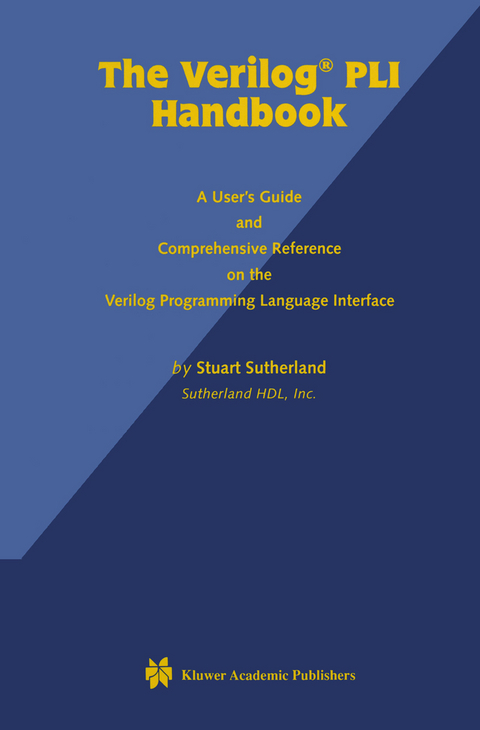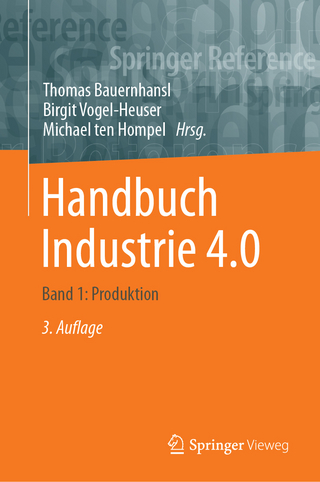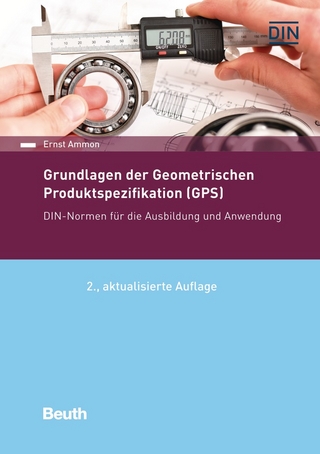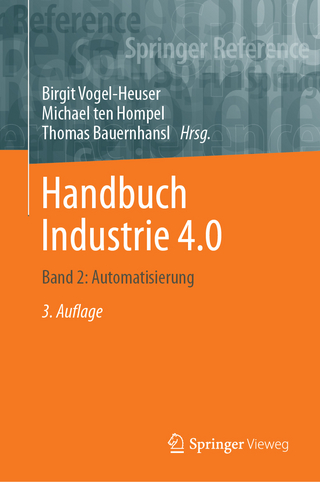
The Verilog PLI Handbook
Springer-Verlag New York Inc.
978-1-4613-7279-0 (ISBN)
Intended audience: this book is written for digital design engineers with a background in the Verilog Hardware Description Language and a fundamental knowledge of the C programming language. It is expected that thereader:
Has a basic knowledge of hardware engineering, specifically digital design of ASIC and FPGA technologies.
Is familiar with the Verilog Hardware Description Language (HDL), and can write models of hardware circuits in Verilog, can write simulation test fixtures in Verilog, and can run at least one Verilog logic simulator.
Knows basic C-language programming, including the use of functions, pointers, structures and file I/O. Explanations of the concepts and terminology of digital
Mr. Stuart Sutherland is a member of the IEEE Verilog standards committee, where he is co-chair of the PLI standards task force and technical editor for the PLI sections of the IEEE 1364 Verilog Language Reference Manual. Mr. Sutherland has more than 14 years of experience in hardware design and over ten years of experience with Verilog. He is the founder of Sutherland HDL Inc., located in Portland Oregon. Sutherland HDL provides expert Verilog HDL and Verilog PLI design services, including training, modeling, design verification and software tool evaluation. Verilog training is one of the specialties of Sutherland HDL. Prior to founding Sutherland HDL in 1992, Mr. Sutherland was as an engineer at Sanders Display Products Division in New Hampshire, where he worked on high speed graphics systems for the defense industry. In 1988, he became a senior applications engineer for Gateway Design Automation, the founding company of Verilog. AtGateway, which was acquired by Cadence Design Systems in 1989, Mr. Sutherland specialized in training and support for logic simulation, timing analysis, fault simulation, and the Verilog PLI. Mr. Sutherland has also worked closely with several EDA vendors to specify, test and bring to market Verilog simulation products. Mr. Sutherland holds a Bachelor of Science in Computer Science, with an emphasis in Electronic Engineering Technology, from Weber State University (Ogden, Utah) and Franklin Pierce College (Nashua, New Hampshire). He has taught Verilog engineering courses at the University of California, Santa Cruz (Santa Clara extension), and has authored the popular "Verilog HDL Quick Reference Guide" and "Verilog PU Quick Reference Guide". He has presented tutorials and papers at the International Verilog Conference and at the International Cadence User's Group Conference, and has won awards for best speaker and best tutorial.
Introduction: The VPI and TF/ACC Parts of the Verilog PLI Standard.- 1: Creating PLI Applications Using VPI Routines.- 2: Interfacing VPI PLI Applications to Verilog Simulators.- 3: How to Use the VPI Routines.- 4: Details about the VPI Routine Library.- 5: Reading and Modifying Values Using VPI Routines.- 6: Synchronizing to Verilog Simulations Using VPI Callbacks.- 7: Interfacing to C Models Using VPI Routines.- 8: Creating PLI Applications Using TF and ACC Routines.- 9: Interfacing TF/ACC PLI Applications to Verilog Simulators.- 10: How to Use the TF Routines.- 11: Reading and Writing Values Using TF Routines.- 12: Synchronizing to Verilog Simulations Using Misctf Routines.- 13: Interfacing to C Models Using TF Routines.- 14: How to Use the ACC Routines.- 15: Details on the ACC Routine Library.- 16: Reading and Modifying Values Using ACC Routines.- 17: Synchronizing to Simulations Using the Value Change Link.- 18: Interfacing to C Models Using ACC Routines.- Appendices.- Appendix A:Linking PLI Applications to Verilog Simulators.- A.1 The PLI Interface Mechanism.- A.2 Linking PLI app’s to the Cadence Verilog-XL simulator.- A.3 Linking to NC-Verilog from Cadence Design Systems, Inc..- A.4 Linking PLI applications to the Model Technology ModelSim simulator.- A.5 Linking PLI applications to the Avant! Polaris simulator.- A.6 Linking to Silos III from Simucad, Inc..- A.7 Linking to VCS from Synopsys, Inc.- A.8 Linking to VeriBest from VeriBest, Inc.- A.9 Summary.- Appendix B: The IEEE 1364–1995 VPI Routine Library.- B.1 VPI Objects Relationships.- B.2 VPI routine definitions (listed alphabetically).- Appendix C: The IEEE 1364–1995 TF Routine Library.- C.1 TF routine definitions (listed alphabetically).- Appendix D: The IEEE 1364–1995 ACC Routine Library.- D.1 ACC Objects Relationships.- D.2 ACC routine definitions (listed alphabetically).
| Zusatzinfo | XXIII, 785 p. |
|---|---|
| Verlagsort | New York, NY |
| Sprache | englisch |
| Maße | 155 x 235 mm |
| Themenwelt | Informatik ► Weitere Themen ► CAD-Programme |
| Informatik ► Weitere Themen ► Hardware | |
| Technik ► Elektrotechnik / Energietechnik | |
| ISBN-10 | 1-4613-7279-8 / 1461372798 |
| ISBN-13 | 978-1-4613-7279-0 / 9781461372790 |
| Zustand | Neuware |
| Informationen gemäß Produktsicherheitsverordnung (GPSR) | |
| Haben Sie eine Frage zum Produkt? |
aus dem Bereich


